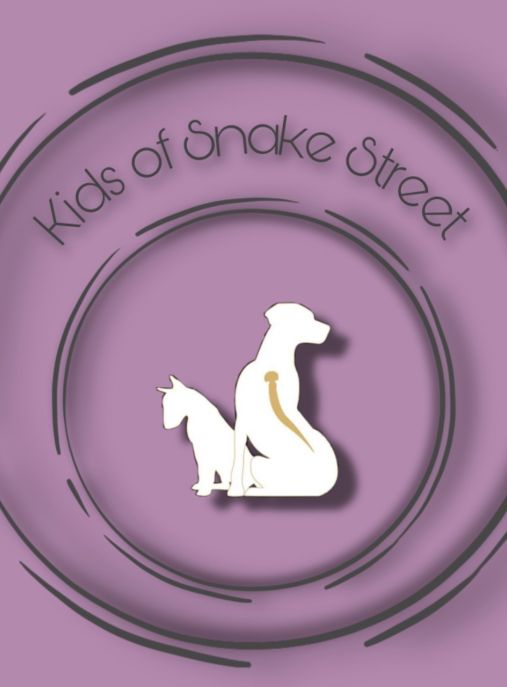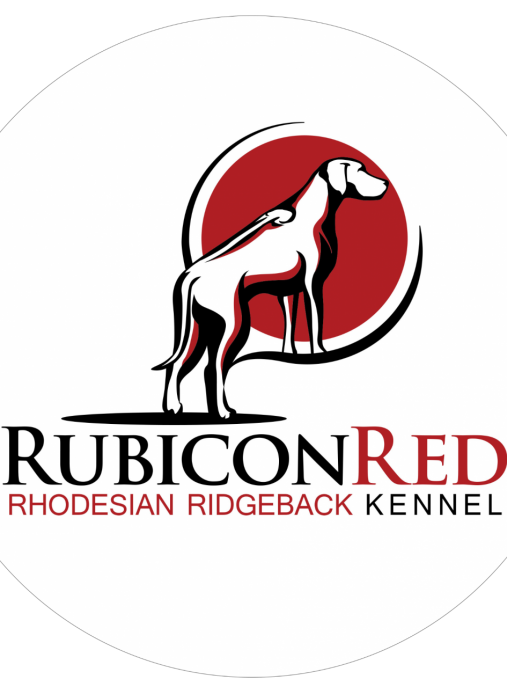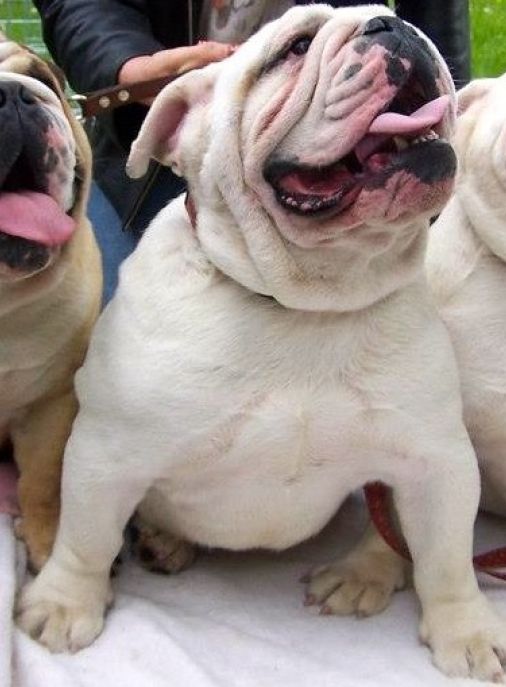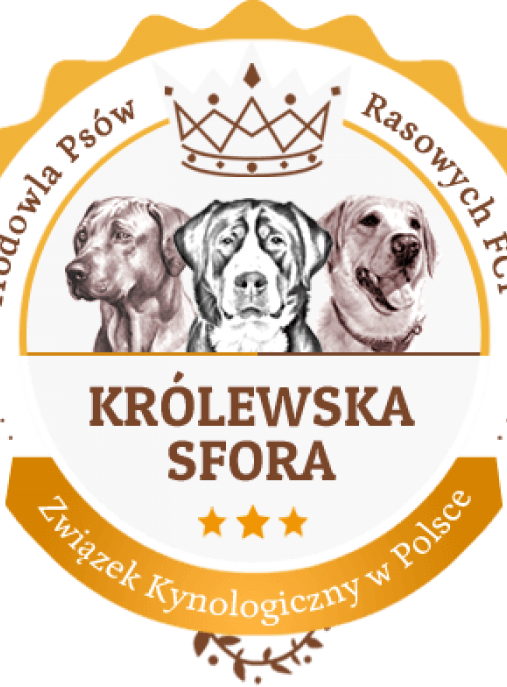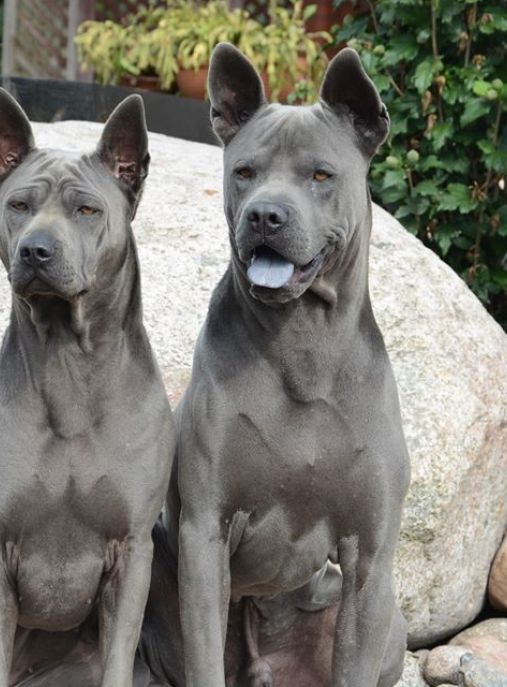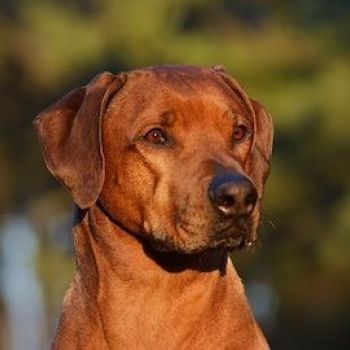The Rhodesian Ridgeback is a majestic and powerful dog breed known for its distinctive ridge of hair along its back. With its regal appearance and muscular build, this breed exudes an air of confidence and strength. Originally bred in Southern Africa, the Rhodesian Ridgeback has a fascinating history and possesses a unique set of characteristics that make it a beloved companion and working dog.
The history of the Rhodesian Ridgeback dates back to the 16th and 17th centuries when European settlers arrived in South Africa. They brought with them various dog breeds, including Greyhounds, Bloodhounds, and Terriers. These dogs were bred with the native African dogs, resulting in a breed that could withstand the harsh African climate and excel in hunting large game.
The breed's defining feature, the ridge of hair along its back, is a result of a genetic mutation. This ridge, which runs in the opposite direction to the rest of the coat, is formed by a strip of hair growing in the opposite direction. It is believed that this unique trait was inherited from the Hottentot hunting dogs, which were used by the indigenous Khoikhoi people for hunting.
According to the Fédération Cynologique Internationale (FCI) typology, the Rhodesian Ridgeback belongs to Group 6: Scenthounds and Related Breeds. This group includes various breeds that excel in scenting and tracking abilities. The Rhodesian Ridgeback is classified under Section 3: Related breeds, which also includes the Thai Ridgeback and the Phu Quoc Ridgeback.
Rhodesian Ridgebacks are versatile dogs that can serve various purposes. Originally bred for hunting and tracking game, they have a keen sense of smell and exceptional tracking abilities. They were often used to hunt lions, making them fearless and tenacious hunters. Today, they are still used for hunting, but they have also found success in other areas such as search and rescue, therapy work, and even as competitive show dogs.
In terms of physical characteristics, the Rhodesian Ridgeback is a large and muscular breed. Males typically stand between 25-27 inches (63-69 cm) at the shoulder, while females are slightly smaller, ranging from 24-26 inches (61-66 cm). The breed's weight ranges from 70-85 pounds (32-39 kg) for males and 60-70 pounds (27-32 kg) for females.
The Rhodesian Ridgeback has a short and dense coat that requires minimal grooming. The coat comes in various shades of wheaten, ranging from light to red. Their eyes are typically round and dark, and their ears are medium-sized and set high on the head. The breed's tail is long and tapers to a point, adding to its elegant appearance.
In terms of temperament, the Rhodesian Ridgeback is known for its loyalty, intelligence, and independence. They are generally good-natured and affectionate with their families, but they can be reserved and aloof with strangers. Early socialization and training are crucial to ensure they grow up to be well-rounded and obedient dogs.
The average lifespan of a Rhodesian Ridgeback is around 10-12 years, although some individuals have been known to live longer with proper care. Like many large breeds, they can be prone to certain health issues, including hip dysplasia, elbow dysplasia, and certain types of cancer. Regular exercise, a balanced diet, and routine veterinary care are essential to keep them healthy and happy.
One interesting fact about the Rhodesian Ridgeback is its exceptional endurance and stamina. These dogs were bred to track and hold large game, such as lions, until the hunters arrived. Their physical prowess and determination make them excellent jogging or hiking companions for active individuals or families.
In conclusion, the Rhodesian Ridgeback is a remarkable breed with a rich history and unique characteristics. From its origins in Southern Africa to its versatile abilities as a hunting and working dog, this breed has captured the hearts of many dog enthusiasts worldwide. With its striking appearance, loyalty, and intelligence, the Rhodesian Ridgeback continues to be a beloved companion and a formidable working partner.

Rhodesian Ridgeback dogs are known for their striking appearance and unique ridge of hair along their backs. However, their character goes far beyond their physical attributes. These dogs possess a combination of traits that make them truly exceptional companions. From their loyalty and intelligence to their protective nature, Rhodesian Ridgebacks are a breed that stands out.
One of the most notable characteristics of Rhodesian Ridgebacks is their unwavering loyalty. They form strong bonds with their families and are known to be fiercely protective. This loyalty extends not only to their human family members but also to their home and territory. Rhodesian Ridgebacks have a natural instinct to guard and protect, making them excellent watchdogs. They are alert and will bark to alert their owners of any potential threats.
Intelligence is another prominent trait of Rhodesian Ridgebacks. They are quick learners and have a keen sense of problem-solving. This intelligence, combined with their independent nature, can sometimes make them a bit stubborn. However, with consistent and patient training, they can excel in various activities such as obedience, agility, and even tracking. Mental stimulation is crucial for this breed, as they thrive when given tasks that challenge their intellect.
Rhodesian Ridgebacks are generally well-behaved and have a calm and composed demeanor. They are not prone to excessive barking or destructive behavior when properly trained and exercised. However, it's important to note that they are a high-energy breed and require regular exercise to keep them happy and content. Daily walks, jogs, or play sessions in a securely fenced area are essential to meet their exercise needs.
When it comes to raising and training Rhodesian Ridgebacks, consistency and positive reinforcement are key. They respond well to reward-based training methods, where they are praised and rewarded for good behavior. Harsh training techniques or punishment can be counterproductive and may lead to a resentful or fearful dog. Early socialization is crucial to ensure they grow up to be well-rounded and friendly dogs. Exposing them to various people, animals, and environments from a young age will help them develop into confident and sociable adults.
Rhodesian Ridgebacks are generally good with children and can be excellent family dogs. However, due to their protective nature, they should always be supervised around young children to prevent any accidental injuries. They are also known to be tolerant of other pets if properly introduced and socialized.
In conclusion, Rhodesian Ridgebacks are a breed with a unique character. Their loyalty, intelligence, and protective nature make them exceptional companions and watchdogs. With proper training, exercise, and socialization, they can thrive in various environments and become well-behaved and loving family members. If you are looking for a devoted and intelligent dog that will always have your back, the Rhodesian Ridgeback may be the perfect breed for you.
The Rhodesian Ridgeback is a magnificent breed known for its distinctive ridge of hair along its back. These dogs are intelligent, loyal, and make excellent companions. However, like any other breed, they require specific care to ensure their well-being. In this text, we will provide an extensive description of the recommended care for Rhodesian Ridgeback dogs, including tips on what to do and what not to do.
1. Exercise: Rhodesian Ridgebacks are active dogs that require regular exercise to maintain their physical and mental health. Aim for at least 60-90 minutes of exercise daily, including walks, runs, and playtime in a secure area. Engaging in activities like agility training or obedience classes can also provide mental stimulation.
2. Grooming: Ridgebacks have short, dense coats that are relatively low-maintenance. Brushing them once a week with a soft-bristle brush will help remove loose hair and keep their coat healthy. Bathing should be done only when necessary, as excessive bathing can strip their skin of natural oils. Regularly check their ears for signs of infection and trim their nails as needed.
3. Nutrition: A balanced diet is crucial for the overall health of your Rhodesian Ridgeback. Feed them high-quality dog food that is appropriate for their age, size, and activity level. Avoid overfeeding, as Ridgebacks are prone to weight gain. Consult with your veterinarian to determine the right portion sizes and feeding schedule for your dog.
4. Socialization: Early and ongoing socialization is essential for Rhodesian Ridgebacks. Introduce them to various people, animals, and environments from a young age to help them develop into well-rounded and confident dogs. Enroll them in puppy socialization classes and expose them to different situations to prevent fear or aggression issues later in life.
5. Training: Rhodesian Ridgebacks are intelligent and eager to please, making them relatively easy to train. Start training early, using positive reinforcement techniques such as treats, praise, and play. Consistency, patience, and firmness are key. Focus on basic obedience commands like sit, stay, come, and leash walking. Crate training is also recommended to provide them with a safe space.
6. Health care: Regular veterinary check-ups are crucial to ensure your Rhodesian Ridgeback's well-being. Vaccinations, parasite prevention, and dental care should be part of their routine healthcare. Additionally, Ridgebacks are prone to certain health conditions such as hip dysplasia, dermoid sinus, and hypothyroidism. Regular exercise, a balanced diet, and maintaining a healthy weight can help minimize the risk of these issues.
7. Avoid leaving them alone for long periods: Rhodesian Ridgebacks are highly social dogs and thrive on human companionship. Leaving them alone for extended periods can lead to separation anxiety and destructive behavior. If you have to be away, provide them with interactive toys, a comfortable space, and consider hiring a dog walker or pet sitter to break up their day.
8. Avoid harsh training methods: Rhodesian Ridgebacks respond best to positive reinforcement training methods. Avoid using harsh or punitive techniques, as it can damage their trust and lead to fear or aggression. Instead, focus on rewarding good behavior and redirecting unwanted behavior.
9. Provide mental stimulation: Rhodesian Ridgebacks are intelligent dogs that require mental stimulation to prevent boredom. Engage them in puzzle toys, interactive games, and training sessions to keep their minds active. Mental stimulation can help prevent destructive behavior and promote a well-balanced dog.
10. Love and companionship: Lastly, Rhodesian Ridgebacks thrive on love, attention, and companionship. They are loyal and affectionate dogs that form strong bonds with their families. Spend quality time with your Ridgeback, provide them with plenty of affection, and make them feel like a valued member of your household.
By following these tips, you can ensure that your Rhodesian Ridgeback receives the care and attention they need to live a happy and healthy life. Remember, every dog is unique, so adapt these recommendations to suit your individual dog's needs and consult with a veterinarian for personalized advice.
The Rhodesian Ridgeback, a majestic and regal breed, is renowned for its distinctive coat color. The common color of Rhodesian Ridgeback dogs is a rich and lustrous wheaten hue, which exudes warmth and elegance. This coloration is often described as a reddish-brown or tan shade, resembling the color of ripe wheat fields at sunset.
The coat of a Rhodesian Ridgeback is short, dense, and sleek, accentuating the beauty of its color. The wheaten color is evenly distributed throughout the body, with variations in intensity and depth. The shade can range from a light, golden tan to a deeper, reddish-brown, depending on individual genetics and environmental factors.
One of the most striking features of the Rhodesian Ridgeback's coat is the presence of a distinct ridge of hair along its back. This ridge, which runs in the opposite direction to the rest of the coat, is formed by a strip of hair that grows in the opposite direction. The ridge is typically darker in color than the rest of the coat, often appearing black or dark brown. It is a defining characteristic of the breed and adds to the allure and uniqueness of the Rhodesian Ridgeback's appearance.
In addition to the primary wheaten color, Rhodesian Ridgebacks may also exhibit small patches of white on their chest, toes, or tail tip. These white markings, known as "flash," add a touch of contrast to the overall coloration and can vary in size and shape. However, excessive white markings are considered undesirable in the breed standard.
The color of a Rhodesian Ridgeback's nose and eyes complements its wheaten coat. The nose is typically black or dark brown, blending harmoniously with the surrounding color. The eyes, which are almond-shaped and expressive, range in color from amber to dark brown, further enhancing the breed's striking appearance.
As Rhodesian Ridgebacks mature, their coat color may undergo subtle changes. Puppies often have a lighter, more golden hue, which gradually deepens and intensifies as they grow older. The final coloration is usually achieved by the age of two, although slight variations may persist throughout their lives.
The common color of Rhodesian Ridgeback dogs, with its warm and earthy tones, perfectly complements their strong and athletic build. It is a color that symbolizes their African heritage and reflects their noble and confident nature. Whether basking in the sunlight or striding with grace, the wheaten coat of a Rhodesian Ridgeback is a testament to their beauty and grace, making them a truly captivating breed.
Rhodesian Ridgebacks are a magnificent breed known for their distinctive ridge of hair running along their back. These dogs are generally healthy and robust, but like any other breed, they are prone to certain health issues. To ensure the well-being of your Rhodesian Ridgeback, it is crucial to be aware of the common diseases they may face and take appropriate measures to care for their health.
One of the most prevalent health concerns in Rhodesian Ridgebacks is hip dysplasia. This condition occurs when the hip joint does not develop properly, leading to discomfort, lameness, and arthritis. Regular exercise, a balanced diet, and maintaining a healthy weight can help reduce the risk of hip dysplasia. Additionally, responsible breeders perform hip evaluations on their breeding dogs to minimize the occurrence of this condition.
Another common health issue in Rhodesian Ridgebacks is dermoid sinus. This congenital condition is characterized by a tube-like structure that extends from the skin to the spinal cord. Dermoid sinuses can become infected, leading to abscesses and neurological problems. Surgical removal is often necessary to treat this condition, and it is crucial to identify and address it early on.
Hypothyroidism is also seen in Rhodesian Ridgebacks. This condition occurs when the thyroid gland does not produce enough hormones, leading to weight gain, lethargy, and skin problems. Regular blood tests can help diagnose and manage hypothyroidism, and medication is often prescribed to regulate hormone levels.
Rhodesian Ridgebacks are also prone to certain types of cancer, including mast cell tumors, lymphoma, and osteosarcoma. Regular check-ups with a veterinarian, routine screenings, and early detection are essential in managing and treating cancer in these dogs.
To care for the health of Rhodesian Ridgebacks, a balanced diet is crucial. Providing high-quality dog food that meets their nutritional needs is essential for their overall well-being. Regular exercise is also vital to keep them physically fit and mentally stimulated. These dogs have a high energy level and require daily activities such as walks, runs, and playtime.
Grooming is another essential aspect of caring for Rhodesian Ridgebacks. Their short, dense coat requires regular brushing to remove loose hair and maintain a healthy coat. Additionally, regular dental care, including brushing their teeth and providing dental chews, can help prevent dental diseases.
Regular veterinary check-ups are crucial for early detection of any health issues. Vaccinations, parasite prevention, and routine screenings are essential to ensure your Rhodesian Ridgeback's health. It is also recommended to spay or neuter your dog to prevent certain reproductive health problems and reduce the risk of certain cancers.
In conclusion, while Rhodesian Ridgebacks are generally healthy dogs, they are susceptible to certain health issues like hip dysplasia, dermoid sinus, hypothyroidism, and cancer. By providing a balanced diet, regular exercise, grooming, and veterinary care, you can help maintain the health and well-being of your Rhodesian Ridgeback. Remember, early detection and proactive care are key to ensuring a long and happy life for your beloved canine companion.
The Rhodesian Ridgeback is a magnificent breed known for its strength, endurance, and loyalty. To ensure their overall health and well-being, it is crucial to provide them with a balanced and nutritious diet. Proper nutrition plays a vital role in maintaining their energy levels, promoting a healthy coat, and supporting their muscular development.
When it comes to feeding a Rhodesian Ridgeback, it is important to focus on high-quality dog food that meets their specific nutritional needs. Look for a dog food that contains a good balance of protein, healthy fats, carbohydrates, vitamins, and minerals. Ideally, the first ingredient should be a high-quality source of animal protein, such as chicken, beef, or fish.
Protein is essential for the development and maintenance of strong muscles in Rhodesian Ridgebacks. Aim for a dog food that contains around 25-30% protein. Additionally, ensure that the fat content is moderate, around 12-15%, as excessive fat can lead to weight gain and related health issues.
Carbohydrates are an important energy source for dogs, but it is crucial to choose high-quality sources like whole grains (brown rice, oats) and vegetables (sweet potatoes, peas). Avoid dog foods that contain excessive amounts of fillers, such as corn, wheat, and soy, as these can cause allergies and digestive issues in some dogs.
It is recommended to feed Rhodesian Ridgebacks twice a day, dividing their daily food portion into two meals. This helps prevent bloating and aids in digestion. The exact amount of food will depend on factors such as age, weight, activity level, and metabolism. Consult with your veterinarian to determine the appropriate portion size for your dog.
In addition to commercial dog food, you can also include some fresh, whole foods in their diet. Lean meats like chicken, turkey, or beef can be cooked and added to their kibble occasionally. Fruits and vegetables like apples, carrots, and green beans can also be given as healthy treats or mixed into their meals. However, avoid feeding them toxic foods like grapes, raisins, onions, garlic, and chocolate.
Proper hydration is essential for any dog, so always ensure that fresh water is readily available for your Rhodesian Ridgeback. Regular exercise is also crucial to maintain their overall health and weight. A combination of daily walks, playtime, and mental stimulation will keep them physically and mentally fit.
While it is important to provide your Rhodesian Ridgeback with a nutritious diet, it is equally important to avoid overfeeding. Obesity can lead to various health issues, including joint problems and heart disease. Monitor their weight regularly and adjust their food portions accordingly.
In conclusion, a well-balanced diet is essential for the health and vitality of Rhodesian Ridgebacks. Choose high-quality dog food that contains a good balance of protein, healthy fats, carbohydrates, vitamins, and minerals. Avoid fillers and opt for whole grains and vegetables instead. Feed them twice a day, provide fresh water, and include occasional fresh, whole foods. Regular exercise and weight management are also key to their overall well-being. By following these guidelines, you can ensure that your Rhodesian Ridgeback thrives and enjoys a long and healthy life.













